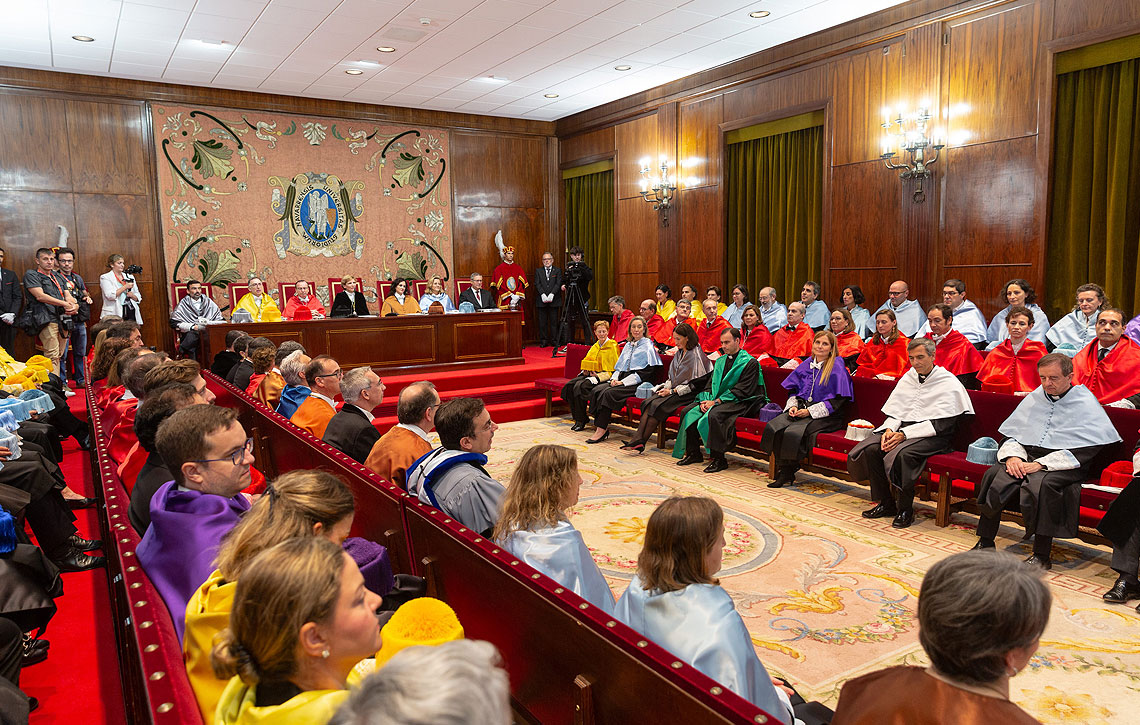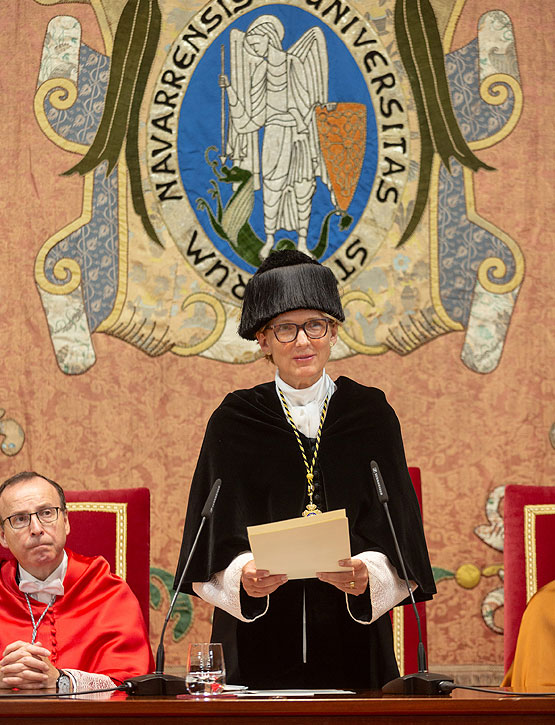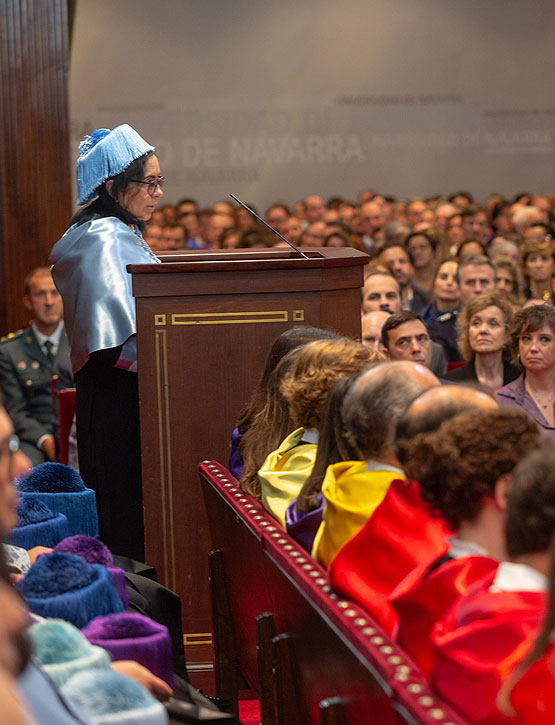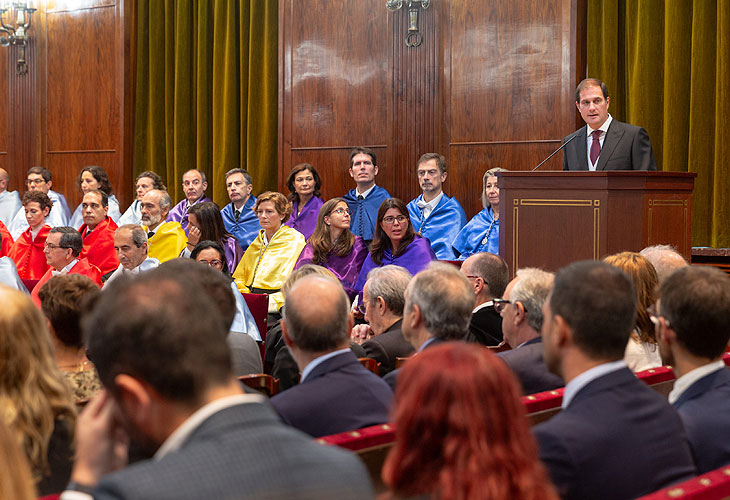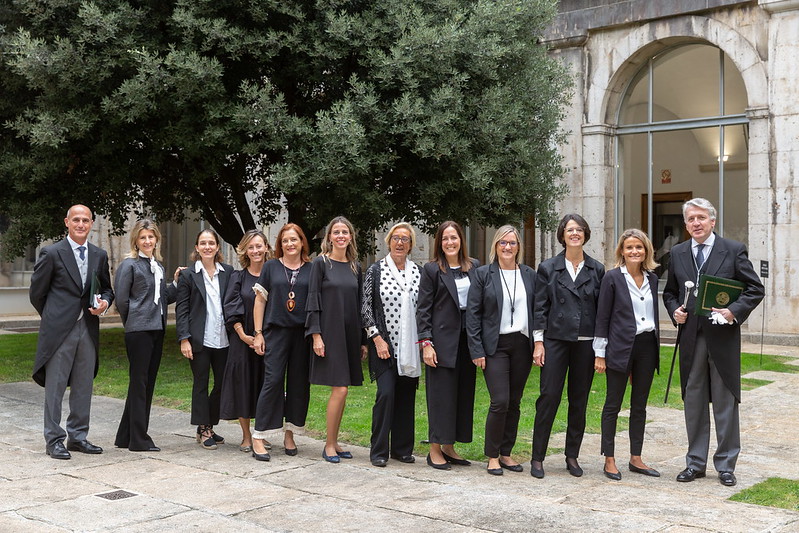The president of the University of Navarra bet that "reflection, coexistence and social commitment are the axes that define the university space". María Iraburu emphasized that these are challenges for the university in general and the University of Navarra in particular, in the face of the times we live in of "strong polarization, simplistic statements, contrary to any reflection and critical vision; of confrontation and blind positioning to the needs and legitimate interests of others: at final, a vitiated atmosphere that can fracture society."
This was stated during the official opening ceremony of the 2023-24 academic year, which took place at the classroom Magna of the academic center and was attended by academic and civil authorities, as well as professors and students. Reflection, coexistence and social commitment "are attractive and to some extent countercultural goals and, therefore, difficult to achieve" and are "a stimulus to exercise the healthy rebelliousness of the university environment, which should always be kept alive," said the president.
Regarding reflection, he pointed out that we are all in need not only of knowledge, but also of wisdom. "First of all, our students, who are our raison d'être and who hope to find here not only an environment of openness and respect, but of intellectual audacity that allows us to explore the great questions of human life." And also, society, which cannot prosper "without people who question the prevailing paradigms and open new horizons that illuminate action".
The second challenge, according to Professor Iraburu, is that of peaceful and plural coexistence: "True university coexistence would not be based on the homogeneity of positions or opinions, or would be the result of atony or individualism. True coexistence assumes and is enriched with diversity and pluralism, with dialogue and participation".
In this sense, he referred to the current need to cultivate and enhance the physical and especially mental health of young people. "I think it is not risky to say that the meeting between people, with the possibility of sharing thoughts, challenges, joys and sorrows is an effective and very collegial way to respond to that need."


